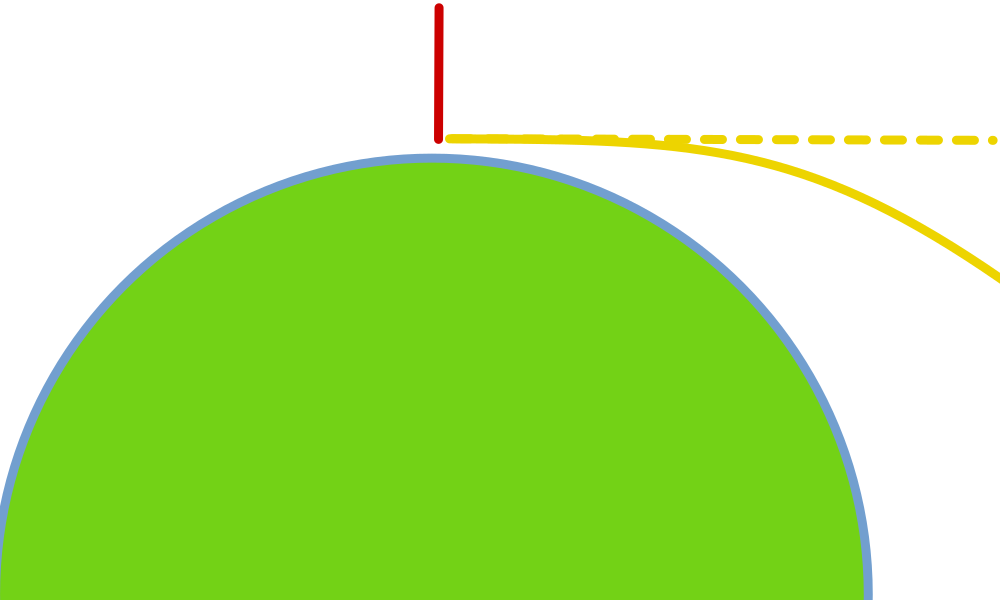Preface: I have read a book (not maths heavy, very light introduction to the issue) of Stephen Hawking about black holes. In the first part he described the theory behind those entities, inter alia, he talked about light and gravity and about that topic I have an issue I'd like to discuss about.
Light is affected by gravity:
- Light trajectory is bended by gravity; (gravitational lens are a valid example but) let's light up a laser (YELLOW in the image) parallel with planet (a enough big one) surface: laser is no a straight line but folded toward due to planet gravity.
- What happens if I point laser (RED in the image) normally to the planet surface (towards the planet's sky)? General relativity assures us speed is a constraint, so how does gravity affect light? I googled and found [1] gravity will lower light frequency (gravitational redshift).
The point: How does energy conservation rule acts in gravitational shift?
If energy is proportional to frequency (thanks to Planck–Einstein relation [2]), light loses some of its energy! Where does it go?
[1] https://helios.gsfc.nasa.gov/qa_sp_gr.html#grav
[2] https://en.wikipedia.org/wiki/Planck%E2%80%93Einstein_relation

